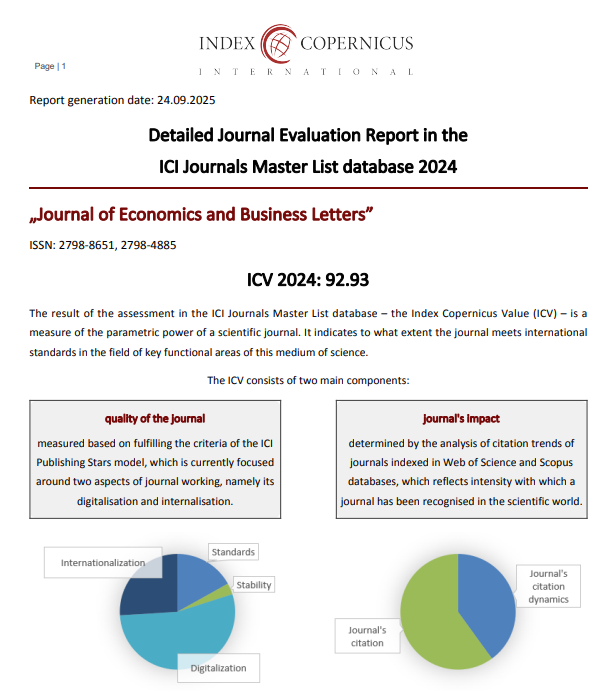Strategies for enhancing financial literacy in Indonesia
DOI:
https://doi.org/10.55942/jebl.v2i1.283Keywords:
Financial Literacy, Indonesia, Economic Empowerment, Financial EducationAbstract
This study provides a comprehensive analysis of financial literacy in Indonesia, identifying critical challenges and exploring effective strategies to improve financial education across the nation. Despite the growing importance of financial literacy in today's economic landscape, Indonesia faces lower rates of financial knowledge compared to global averages, with significant disparities across different demographic groups. Through a literature review approach, this research examines the current state of financial literacy, evaluates the effectiveness of existing educational programs, and proposes innovative solutions to bridge the knowledge gap. The findings highlight the potential of integrating financial education into national curricula and leveraging digital technologies to expand access to financial learning resources. Moreover, the study emphasizes the need for collaborative efforts among government bodies, educational institutions, and private sectors to develop tailored and inclusive financial literacy initiatives. By addressing these challenges, Indonesia can foster economic empowerment, enhance personal financial well-being, and contribute to sustainable economic development. This paper contributes to the ongoing dialogue on financial education and serves as a foundation for policymakers, educators, and researchers aiming to promote financial literacy as a cornerstone of societal progress.
References
Allgood, S., & Walstad, W. B. (2016). The effects of perceived and actual financial literacy on financial behaviors. Economic inquiry, 54(1), 675-697.
Amagir, A., Groot, W., Maassen van den Brink, H., & Wilschut, A. (2018). A review of financial-literacy education programs for children and adolescents. Citizenship, Social and Economics Education, 17(1), 56-80.
Aprea, C., Wuttke, E., Breuer, K., Koh, N. K., Davies, P., Greimel-Fuhrmann, B., & Lopus, J. S. (Eds.). (2016). International handbook of financial literacy (pp. 397-414). Singapore: Springer.
Fahlevi, M., Saparudin, M., Maemunah, S., Irma, D., & Ekhsan, M. (2019). Cybercrime business digital in Indonesia. In E3S Web of Conferences (Vol. 125, p. 21001). EDP Sciences.
Guiso, L., & Viviano, E. (2015). How much can financial literacy help?. Review of finance, 19(4), 1347-1382.
Kaiser, T., & Menkhoff, L. (2017). Does financial education impact financial literacy and financial behavior, and if so, when?. The World Bank Economic Review, 31(3), 611-630.
Karakurum-Ozdemir, K., Kokkizil, M., & Uysal, G. (2019). Financial literacy in developing countries. Social Indicators Research, 143, 325-353.
Lusardi, A. (2015). Financial literacy: Do people know the ABCs of finance?. Public understanding of science, 24(3), 260-271.
Mitchell, O. S., & Lusardi, A. (2015). Financial literacy and economic outcomes: Evidence and policy implications. The journal of retirement, 3(1), 107.
Ouachani, S., Belhassine, O., & Kammoun, A. (2021). Measuring financial literacy: A literature review. Managerial Finance, 47(2), 266-281.
Potrich, A. C. G., Vieira, K. M., & Mendes-Da-Silva, W. (2016). Development of a financial literacy model for university students. Management Research Review, 39(3), 356-376.
Stolper, O. A., & Walter, A. (2017). Financial literacy, financial advice, and financial behavior. Journal of business economics, 87, 581-643.
Downloads
Published
How to Cite
Issue
Section
License
Copyright (c) 2022 Journal of Economics and Business Letters

This work is licensed under a Creative Commons Attribution 4.0 International License.
















